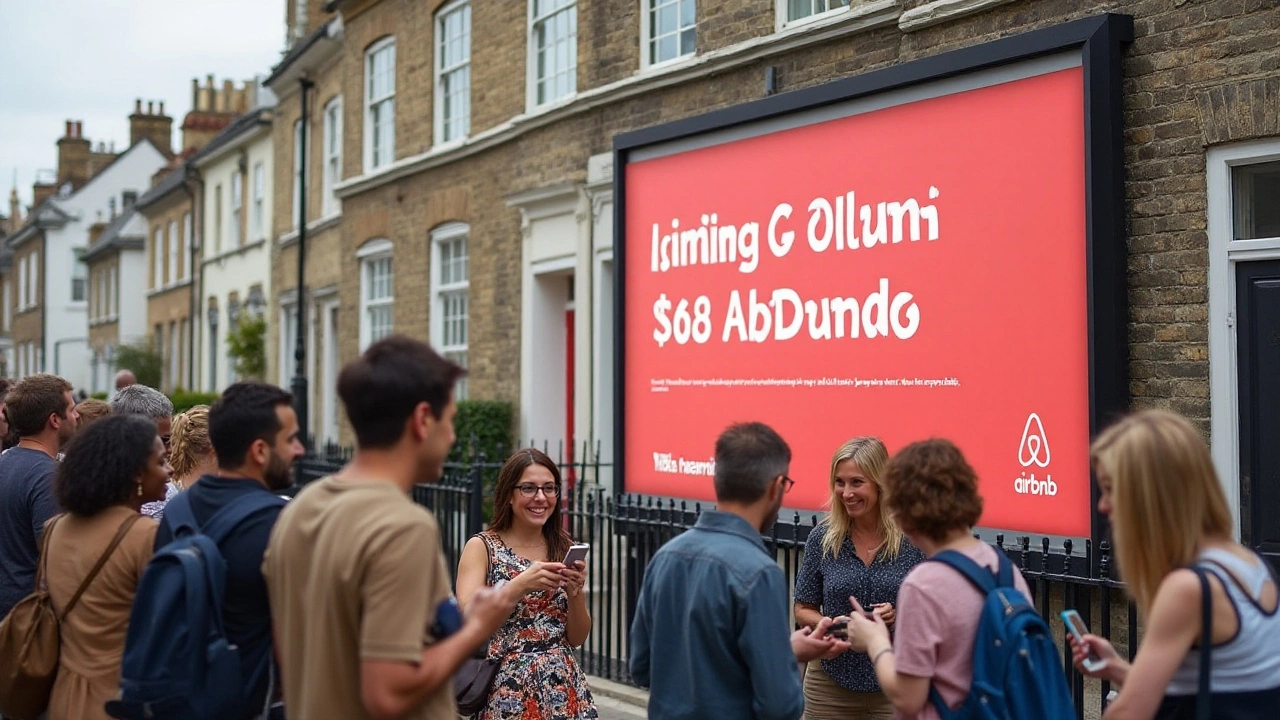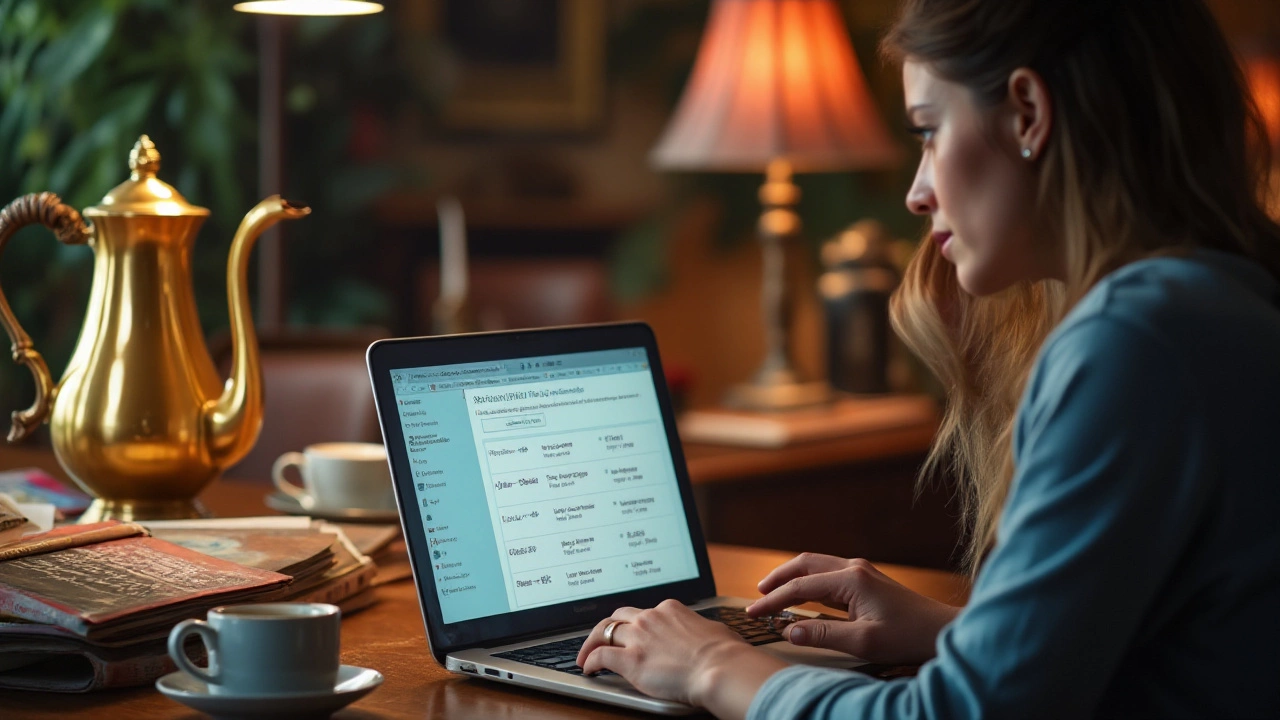Understanding Airbnb Price Hikes in the UK: A Staycation Analysis
 Jan, 2 2025
Jan, 2 2025
The allure of a UK staycation has been shining brightly in recent years, promising the comfort of the familiar coupled with the thrill of discovery just around the corner. However, many tourists and locals alike have noted a startling trend: the rising cost of Airbnb accommodations. What once seemed a budget-friendly and uniquely personal choice now often carries a heftier price tag.
Understanding these costs requires unpacking a complex web of factors, from increasing local demand and seasonal popularity to economic pressures and regulatory changes in the hosting landscape. Delving into these reasons provides clarity and can help savvy travelers find the best deals without sacrificing the quality of their precious getaways.
- The Rise of Staycations in the UK
- Factors Influencing Airbnb Prices
- Comparative Analysis with Other Accommodations
- Tips for Booking Affordable Stays
The Rise of Staycations in the UK
It's hard to ignore the tidal wave of enthusiasm for staycations in the UK, a trend that seems only to be gaining strength. As international travel posed logistical challenges and unpredictability over the past few years, UK residents increasingly turned their gazes inward, exploring what was in their own backyard. This newfound appreciation for local exploration has reignited interest in discovering charming countryside retreats, bustling city escapes, and serene coastal getaways. It's not just about convenience; many have realized that adventure can be just as thrilling within the familiar comfort of their homeland.
The push towards UK staycations wasn't merely a fad triggered by travel restrictions. There's been a conscious shift towards minimizing carbon footprints with more sustainable travel practices, sparking interest in local tourism. According to VisitBritain, domestic travel spending saw a notable increase as Brits opted for responsible travel, which nurtured the local economy while offering a diverse range of experiences. From historical tours in Yorkshire to hiking the rugged beauty of the Scottish Highlands, there's no shortage of breathtaking vistas and cultural escapades to enjoy.
"In times of uncertainty, exploring familiar surroundings became a source of solace and discovery," notes Jane Smyth, travel expert at VisitBritain. "Staycations have provided many with a newfound appreciation for the stunning diversity of landscapes we are lucky to have right at our doorstep."
This enthusiasm for rediscovering the UK as a prime destination has undeniably impacted the hospitality sector, with Airbnb properties increasingly in demand. The platform offers unique lodging options that range from cozy cottages to luxury city apartments, catering to varying tastes and budgets. The rise in popularity of such accommodations during peak holiday seasons and weekends has led to heightened competition, indirectly pushing prices upward. The surge in demand shows no signs of slowing down, establishing staycations as a staple in the UK's travel culture.

Factors Influencing Airbnb Prices
In unraveling the intricacies of why Airbnb UK prices continue to climb, one must first consider the profound demand shifts triggered by the staycation boom. As more people opt to explore the charms of their own homeland, the competition for desirable spots has soared. This surge in demand, particularly during peak travel periods like summer and bank holidays, places direct pressure on pricing. Listing availability has become a precious commodity in popular destinations such as the Lake District or Cornwall, where idyllic landscapes beckon travelers near and far.
Another pivotal factor is the broader economic climate, which subtly nudges Airbnb rental fees upwards. Inflation, coupled with increasing operational costs such as cleaning services and property maintenance, inevitably lead hosts to adjust their pricing models. This economic backdrop can sometimes mask price hikes, making it challenging for travelers to perceive the direct impacts on their budgets. The urban areas, juxtaposed against rural retreats, often see more significant fluctuations due to these economic variances.
Local legislation also plays a crucial role in shaping the cost landscape of Airbnb stays. Cities like Edinburgh and London have implemented regulations that limit short-term rentals to mitigate housing shortages for residents, inadvertently nudging rental prices higher as the supply decreases. These legal frameworks are ever-evolving, and staying informed about recent changes can save prospective guests from unexpected fees or limited availability. Additionally, the tourist levy, newly introduced in some regions, can further lead to increased accommodation costs.
To paint a clearer picture: during the past year, studies indicate that Airbnb prices in sought-after tourist areas increased by approximately 15%, hinting at how potent these factors are. Consider the insights of travel expert John Andrews, who noted,
"The new norms of remote work have emboldened many to take extended stays, which after COVID restrictions, translated to crowded markets and climbing costs."Such dynamics are unlikely to recede soon, prompting travelers to rethink how they plan and budget vacations. Armed with this understanding, the strategic planning of travel dates and destinations becomes a more crucial part of preserving value in their travel experience.

Comparative Analysis with Other Accommodations
Weighing the cost of an Airbnb against traditional accommodations like hotels and bed-and-breakfasts unveils a fascinating panorama of choices for travelers. In recent years, an interesting trend has emerged, with the flexibility and home-like atmosphere of Airbnb rentals often being offset by unexpectedly high fees that fluctuate based on several factors. These are inclusive of cleaning fees, service charges, and sometimes even security deposits, which might make Airbnb seem less appealing when placed side by side with their hospitality counterparts. The unpredictability of these costs leads travelers to reevaluate their options, often turning a simple act of booking into a game of strategic decision-making.
This isn't to say hotels are the perfect alternative; they come with their own set of challenges and costs. For example, while hotels might offer consistent pricing structures, they often lack the personalized experiences and local charm that many UK staycations enthusiasts crave. On the opposite end of the spectrum, bed-and-breakfast establishments provide a cultural charm that neither hotels nor Airbnbs can replicate, yet they frequently operate with limited availability and must be booked well in advance to secure a spot in popular locations. This interplay between charm, cost, and convenience is precisely why travelers find themselves in a fascinating predicament, choosing between the warmth of personal touch and the sterility of a commercial stay.
The Guardian notes, "As holidaymakers turn to more intimate staycations, the desire for genuine, local experiences often outweighs the sterile convenience of the global hotel chains."
It’s also worth noting the evolving role of technology and instant booking platforms in influencing traveler preferences. Platforms that aggregate hotel prices often offer competitive deals and loyalty programs, making spontaneous bookings more attractive. In contrast, Airbnb's competitive edge used to hinge on its peer-to-peer model, offering dynamic pricing and unique homes; however, with rising costs, this edge is growing blunt. During peak travel seasons, some Airbnb prices soar to double what they used to, making former favorites unaffordable for budget-conscious travelers. Ironically, this shift redirects some demand back to traditional hotels, which may offer packages that include meals or other amenities, counterbalancing their perceived lack of authenticity compared to rental homes.
To paint a clearer picture, consider the driving factors behind cost comparisons between these types of accommodations. While Airbnb's initial premise was affordability, the door opened to boutique hotels and hostels which now offer hybrid options – private rooms with shared spaces, fusing the communal spirit of a hostel with the privacy Airbnb heralds. Such alternatives can often be better suited for larger groups or families, as cost per head typically decreases with more occupants, a crucial consideration for families or groups. Ultimately, it is this medley of options and the unique quirks of each stay that make planning a UK travel adventure an art rather than a science.

Tips for Booking Affordable Stays
Booking an affordable Airbnb in the UK doesn't have to feel like a quest for buried treasure. There are clever strategies which, if employed, can uncover financially viable options without compromising style or comfort. One of the most effective approaches is to plan your stay during off-peak seasons. This doesn't just lower costs but also ensures fewer crowds, allowing you to enjoy a more relaxed, intimate experience. It's worth noting that in areas popular during summer months, like Cornwall or the Lake District, prices can drop substantially during the winter, transforming otherwise expensive locations into budget-friendly escapes.
Consider using the 'Flexible Dates' option that Airbnb offers. It allows you to explore a broader range of dates which might include lower-cost openings that you might miss with rigid travel plans. Sometimes being a little flexible can result in substantial savings. Book far in advance when you can, but sometimes, very last-minute bookings can also yield lower prices if a host wants to fill a vacancy. Signing up for Airbnb alerts for price drops or new listings can also work to your advantage, keeping you informed when opportunities arise.
The Guardian once noted, "While an increasing number of travelers turn to Airbnb for its bespoke experiences, many are discovering that planning months ahead or opting for mid-week stays can significantly drive down costs."
Connecting with hosts directly to inquire about discounts for longer stays can also benefit your pocket. Many hosts offer reduced rates for weekly or monthly stays, which suits perfectly if you have the flexibility. Don't hesitate to reach out and negotiate, especially if you notice the place hasn't been booked for upcoming dates. A polite request like, "Hi, I love your listing and would like to stay longer if rates allow. Are there any discounts for extended stays?" can sometimes work wonders.
Sometimes, travelers might shy away from new or less-reviewed listings, which can be a mistake. New hosts often price their listings lower to attract their initial guests and gather positive reviews. Always read the reviews to get an understanding of what previous guests experienced, even if they are few. Look for key points about cleanliness, communication, and location. Opting for a smaller town or village accommodation can also be significantly cheaper while still keeping you in close reach of popular destinations.
Creating a wishlist on Airbnb allows you to track several favorable properties and their price changes over time. It's a simple feature, yet one that takes a lot of stress out of the booking process as you can monitor when prices fluctuate. Utilize filters such as 'Entire place' or 'Private room' based on your preferences and budget; sometimes, a private room offers more cultural immersion at a fraction of the cost of an entire unit.
Realizing the impact of good timing and targeted searches can make all the difference in snagging a deal. With these practical, money-saving tactics up your sleeve, your journey through the UK staycations can be both memorable and financially smart.
